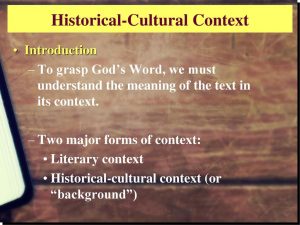
Shownotes
Welcome to Day 1574 of our Wisdom-Trek, and thank you for joining me.
This is Guthrie Chamberlain, Your Guide to Wisdom
Bible Study – Word Meanings and Context – Meditation Monday
Welcome to Wisdom-Trek with Gramps! Wisdom is the final frontier in gaining true knowledge. Our mission is to create a legacy of wisdom, seek out discernment and insights, and boldly grow where few have chosen to grow before. Hello, my friend; this is Gramps; thanks for coming along on our journey to increase Wisdom and Create a Living Legacy Today is Day 1574 of our Trek, and it is time for Meditation Monday. Taking time to relax, refocus, and reprioritize our lives is crucial in order to create a living legacy. For you, it may just be time alone for quiet reflection. You may utilize structured meditation practices. In my life, Meditation includes reading and reflecting on God’s Word and in prayer. It is a time to renew my mind, refocus on what is most important, and making sure that I am nurturing my soul, mind, and body. As you come along with me on our trek each Meditation Monday, it is my hope and prayer that you, too, will experience a time for reflection and renewing of your mind.
We are continuing our series this week on Meditation Monday as we focus on Mastering Bible Study through a series of brief insights from Hebrew Scholar, Dr. Michael S. Heiser. Our current insights are focusing on accurately interpreting the Bible. Today let us meditate on:
Bible Study – Word Meanings and Context
· Insight Fifty-Nine: A Word Never Simultaneously Means All the Things It Can Mean
Words rarely mean only one thing. Most words in a given language can convey several senses.
For example, the word ‘top’ can refer to a garment worn on the upper body, the highest point of reference, or (as a verb) to cover or be superior to something. The right meaning depends on how the word is used in context.
It would be silly to suggest that the occurrence of the word ‘top’ in any given sentence has all those meanings in that sentence. For instance, in the sentence She was at the top of her field, do I mean to suggest that the woman “covered’ a field so well that she “gained superiority” over everyone else and that her job happened to be on the highest floor of her office building, which housed a business that made clothing to be worn on the upper body? Of course not. The idea is as absurd as the illustration.
Naturally, I’d agree. The whole approach is comical. And yet, I’ve seen it in Bible study notes, student papers, blog posts, and Bible-related articles submitted for publication. For some reason, people seem to believe that ‘Bible words’ have some sort of mystical quality that allows us to throw out common sense when doing word studies. Just because a book is sacred doesn’t mean its content must violate what makes a language coherent. Sanctified absurdity would still be an absurdity.
No vocabulary of a language includes all possible meanings in every instance of usage. If you tell someone your wife is fetching, you mean she’s attractive, not the obvious alternative that just popped into your head. If your kids are spoiled, you don’t mean they are no longer edible.
This feature of language doesn’t change when we come to the Bible. A biblical word with a half-dozen senses doesn’t bring them all into a verse simultaneously. Hebrew and Greek words aren’t like the heads of dandelions, waiting to release thousands of meanings into the air when held up to the wind.
The fact that God was providentially behind Scripture’s production doesn’t change what he asked the human authors to do. They produced comprehensible documents, not literary onions that only elite mystics could unpeel and decipher. If Scripture failed to communicate to the masses, the entire enterprise would be pointless.
· Insight Sixty: Genre Is Another Word for Context

Dr. Heiser shares, the first time I heard the term “literary genre” was in a high school English class. I was not too fond of English literature, mostly for shallow reasons. It was too modern. I had a one-track mind for antiquity. If it wasn’t written “BC,” I didn’t care. I also thought it sounded too artsy and highbrowed. I was under the misguided notion that all I needed to do to understand the Bible was to be able to read. The genre seemed to be nothing more than a fancy term to confuse the simple act of reading. What a dim bulb I was.
Fortunately, I had some excellent professors in seminary and graduate school that helped me get a firm grasp of the obvious. They taught me that it was absurd to talk about interpreting the Bible in context and throw genre to the wind. Genre is context (at least one of them).
To speak of literary genre is to talk of how any given piece of writing should be characterized in everyday life. Genre is how we describe a type of written document. In modern terms, all the following are examples of genres: email, blog posts, letters, receipts, contracts, poems, certificates, tax forms, wills, fiction, and nonfiction. Many of these can be categorized even more precisely. For example, fiction might include horror, sci-fi, comedy, history, suspense, mystery, etc.

Genre is crucial for context because the same word occurring across different types of literature or documents will be understood quite differently. Why? Because genre dictates the perspective for interpretation.
You and I understand the noun “rock” differently if it appears in the sport’s section of a newspaper, a music magazine, a geology textbook, and a classic film crime drama about a jewelry heist. In order, the word would refer to a basketball or football, a type of music, a piece or mass of stone, and a gemstone. The word doesn’t change, but its meaning varies dramatically. The meaning of a word is driven by context, and genre is context.
The serious Bible student must be aware of the importance of genre. Academic commentaries that engage the text as literature (as opposed to a devotional or homiletical approach) will pay close attention to the genre. Make sure you have tools that alert you to the genre in your Bible study arsenal.
Study this Book of Instruction continually. Meditate on it day and night so you will be sure to obey everything written in it. Only then will you prosper and succeed in all you do.
That is a wrap for today’s Meditation. Next week we will continue our trek on Meditation Monday as we take time to reflect on what is most important in creating our living legacy. Thank you for joining me on this trek called life. Encourage your friends and family to join us and then come along tomorrow for another day of ‘Wisdom-Trek, Creating a Legacy.’

If you would like to listen to any of the past 1573 daily treks or read the daily Journal, they are available at Wisdom-Trek.com. I encourage you to subscribe to Wisdom-Trek on your favorite podcast player so that each day will be downloaded to you automatically.
Thank you for allowing me to be your guide, mentor, and most importantly, I am your friend as I serve you through this Wisdom-Trek podcast and Journal.
As we take this Trek of life together, let us always:
- Live Abundantly (Fully)
- Love Unconditionally
- Listen Intentionally
- Learn Continuously
- Lend to others Generously
- Lead with Integrity
- Leave a Living Legacy Each Day
I am Guthrie Chamberlain….reminding you to ’Keep Moving Forward,’ ‘Enjoy your Journey,’ and ‘Create a Great Day…Everyday’! See you tomorrow for more daily wisdom!